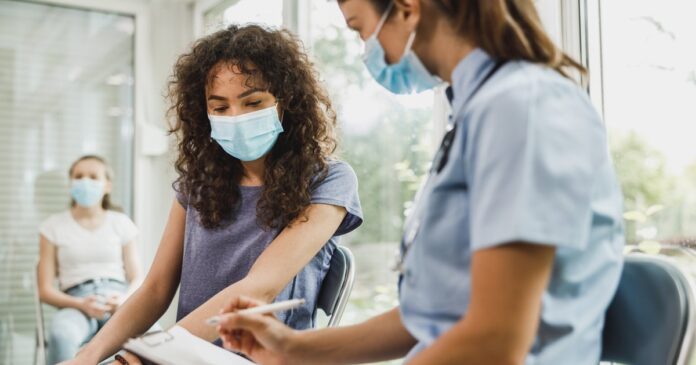As your child transitions to adulthood, one of the most important things
you can do is to empower them with knowledge about their body and their
reproductive health. And that begins with talking to their pediatrician.
It’s important to note that not all assigned-female children identify as
girls. Some identify as boys or nonbinary, so I will be using
gender-neutral nouns and pronouns throughout this article. Regardless of a
child’s gender identity, visits to an obstetrician-gynecologist (OB-GYN)
remain just as important.
Talk to Your Child’s Doctor
Many times, pediatric offices have an adolescent specialist on staff whom
your child can speak to. If not, they can recommend an
OB-GYN. You can help your child find an OB-GYN provider they will feel
comfortable with.
This is especially important for children who identify as
LGBTQ+
and/or
nonbinary. They often
do not feel understood and supported
by parents, teachers, health care workers, and other adults. Trust is an
essential element in the doctor-patient relationship, so it’s
vital to select health care professionals who are comfortable
with your child’s sexual orientation and gender identity.
The
American College of Obstetricians and Gynecologists
recommends that teens first visit an OB-GYN when they are between the ages
of 13 and 15, or if they have a health issue (like painful periods or a
yeast infection) or become sexually active. Most teens this age
don’t need to have a pelvic exam
if they aren’t having a problem, even if they start birth control. The
current recommendation for a first pelvic examination and Pap smear is
age 21.
What Your Child Can Expect at Their First OB-GYN Visit
As children go through puberty, they need to be given the tools to help
them make safe and appropriate choices and advocate for themselves. This
begins with having in-depth knowledge about their bodies and their
reproductive health. That’s why it’s important to schedule a visit with an
OB-GYN who can provide invaluable education that will empower your child as
they grow into an adult.
It’s helpful to prepare your child so they know
what to expect
at their first appointment. At first, it may feel uncomfortable talking to
them about these topics, but there are plenty of
resources available
to help you navigate those sensitive conversations.
- Health education:
The OB-GYN will discuss common questions around puberty, periods and
premenstrual syndrome, yeast infections, breast health, urinary tract
infections, and more. The doctor may also answer any questions your child
may have about how to best keep their body clean and healthy as it changes. - Birth control:
Regardless of whether your child is sexually active, the OB-GYN will
discuss
birth control. But there’s no need to stress: remember, the best time for the doctor to
have these conversations is
before
your child is sexually active. The OB-GYN will explain different birth control options, including
abstinence, condoms, the oral contraceptive pill, intrauterine devices
(IUD), subdermal implant, transdermal patch, and vaginal rings. The OB-GYN
may also recommend your child get
the HPV vaccine, if they haven’t had it yet. - STI testing:
If your child is sexually active, the OB-GYN may screen for common STIs
(sexually transmitted infections) including chlamydia, HPV, HIV, gonorrhea,
syphilis, and hepatitis. - Healthy relationships:
Some OB-GYNs may discuss relationships with teens. They will talk about
what constitutes a healthy relationship, boundaries, consent, and warning
signs of unhealthy relationships. - Substance abuse/risky behaviors:
The OB-GYN may also discuss the risks associated with using alcohol and
drugs or engaging in unsafe sex.
Everyone Needs Age-Appropriate Education and Care
Assigned-male children need education about puberty and their
sexual/reproductive health as well, so if you have one, make sure to ask
their primary care physician to provide some age-appropriate education (if
they haven’t done so already).
And remember, the
American Academy of Pediatrics
recommends that doctors begin setting aside one-on-one time with young
people as early as age 11. So don’t be offended if your child’s doctor asks
you to leave the room for part of the appointment. Having a trusted health
care provider that your child can talk to gives them confidence to ask
questions, empowers them to advocate for their own health, and helps keep
them safe and healthy.
This article was originally published on
IBX Insights.
About Dr. Nuria Lopez-Pajares
Dr. Nuria Lopez-Pajares joined Independence Blue Cross in 2018 after
practicing primary care and population health for 18 years. With a
background in public health and preventive medicine, she is now a medical
director involved in utilization management, case management, and quality
improvement. What she loves about this job is the opportunity to put
prevention into practice and educate.



